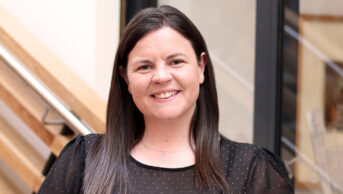
Shutterstock.com
Researchers have warned that community pharmacy risks being seen as a “leftover” opportunity for preregistration training, as 84% of pharmacy students choose hospital pharmacy as their first choice for placements.
The comments were made in a study published in the
International Journal of Pharmacy Practice
(26 February 2020), which was the first large-scale evaluation of applicant behaviour and choice in a UK pharmacist preregistration training programme.
Researchers from Health Education England (HEE) and the Royal Pharmaceutical Society found that 83.9% (2,182) of the 2,694 pharmacy students in the study put hospital as their first choice for training during the 2017/2018 preregistration recruitment scheme, compared with 16.1% (418) who opted for community programme.
The study analysed applicant data from the HEE preregistration recruitment scheme, as well as results from a web-based survey of all fourth-year students undertaking a ‘Master of Pharmacy’ programme or the ‘Overseas pharmacist assessment’ programme, who were eligible to apply for the training.
The majority of applicants (86%; n=2,325) selected programmes from both hospital and community sectors, while 11% (n=283) opted for hospital-only placements and 3% (n=86) chose community-only settings.
A total of 84% (n=2,182) applicants ranked a hospital programme as their first choice; only 16% (n=418) ranked community pharmacy as their first choice.
Placements in urban areas, particularly in London, were most popular, with 81% (n=2,171) selecting at least one London-based programme, the results showed.
Through the web-based survey of 307 trainees, researchers discovered that long-term career aspirations to work in a hospital was rated most highly by students as influencing their decision (63%; n=187), followed by the desire to live either close to home and/or where they wanted to live long term (61%; n=179).
“Secondary care was the most desirable destination for pharmacy students to undertake early career training,” the researchers said.
“The clinical roles and career opportunities in community pharmacy need to be promoted as there is a risk that community pharmacy training programme places may be seen as a ‘leftover’ opportunity for less competitive candidates to uptake.”
Commenting on the research, the British Pharmaceutical Students’ Association (BPSA) said students’ choice might also be influenced by preregistration exam results, where hospital trainees consistently outperform their peers in the community.
Rhys Llewellyn, a spokesperson for the BPSA, said: “A lot of the big universities have strong links with the hospitals. I think there needs to be stronger communication between the community pharmacy sector, with emphasis on its merits, and the university students.”
He added that graduates were more attracted to hospital training programmes because they expose trainees to a more diverse group of patients, compared to community pharmacy where trainees are more likely to see the same type of patients.
Pharmacy graduates are also keen to spend their preregistration year working in different sectors so they can have a broad range of experiences, he said. That option is already available in Scotland and is being introduced in Wales.
Helga Mangion, policy manager at the National Pharmacy Association, commented: “Like all pharmacy sectors, community pharmacy is also facing a recruitment challenge, although it is geographically variable.
“Some areas find it harder to recruit than others, for example rural parts of Northern Ireland, Scotland, and Cornwall.
“A career in community pharmacy can be enormously satisfying because of relationships built up over years with patients, families and whole communities. That’s part of the story that young people coming into pharmacy need to hear more.”


